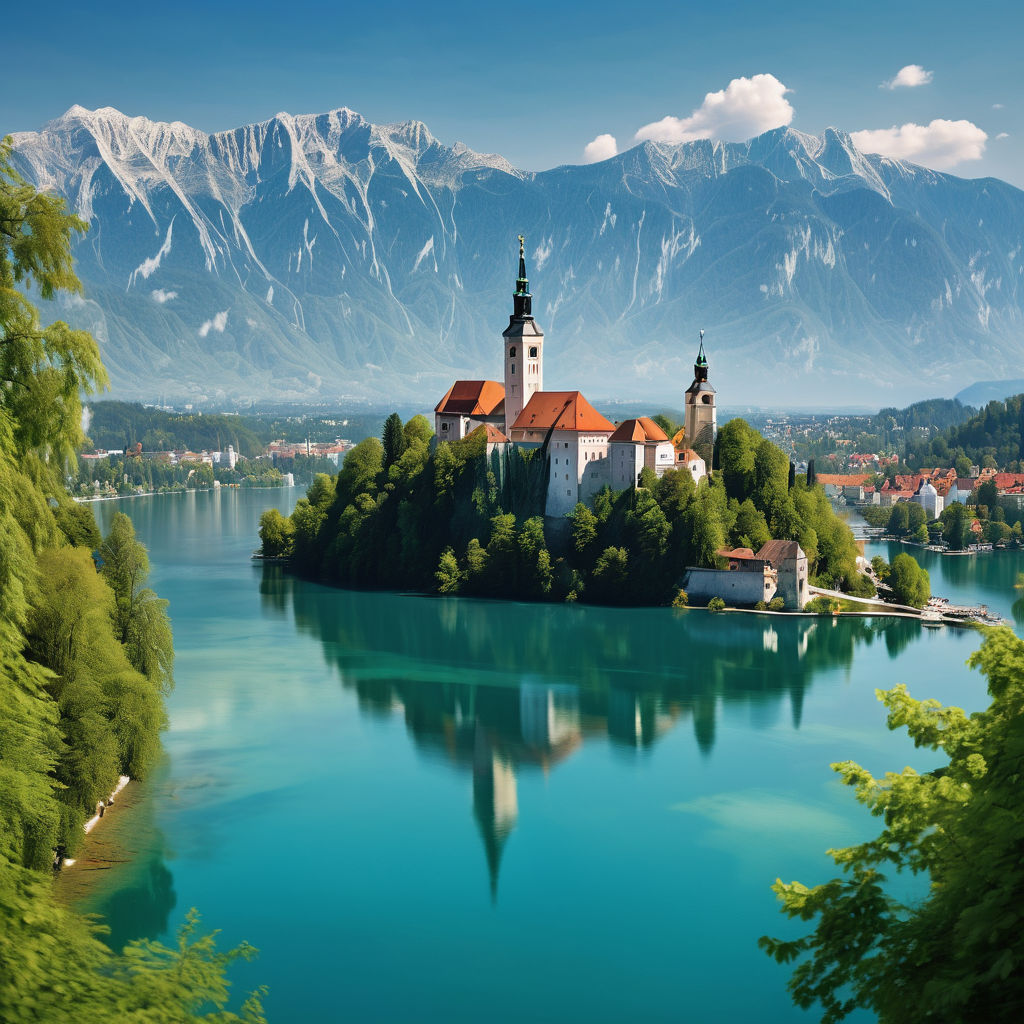Introduction to Slovenia: A Central European Gem
Discover Slovenia's Rich Cultural Heritage and Global Connections

Introduction to Slovenia
Slovenia, a picturesque country in Central Europe, is bordered by Italy to the west, Austria to the north, Hungary to the northeast, Croatia to the south, and the Adriatic Sea to the southwest. Its capital and largest city, Ljubljana, is a vibrant hub of culture, education, and politics. Other major cities include Maribor, known for its wine culture and historical sites, and Koper, a coastal city with significant port activity. Slovenia is renowned for its stunning landscapes, from the majestic Julian Alps to the scenic Lake Bled, offering a rich tapestry of natural beauty and cultural heritage. Slovenia's cultural heritage is a blend of Slavic, Germanic, and Romance influences, reflecting its historical ties with various European powers. Traditional Slovenian music, dance, and folklore are integral parts of the country's cultural identity. Festivals such as Kurentovanje in Ptuj celebrate ancient traditions with vibrant costumes and parades. Slovenian cuisine, featuring dishes like potica (nut roll pastry), jota (bean and sauerkraut stew), and žlikrofi (dumplings), reflects the diverse culinary influences of the region.
Cross-national and Cross-cultural Understanding
Slovenians generally perceive and engage with other cultures with openness and curiosity, a trait shaped by their country's strategic location at the crossroads of different civilizations and trade routes. This openness is reflected in various cultural exchanges, educational programs, and international partnerships that promote cross-cultural understanding. Cultural exchanges play a crucial role in fostering cross-cultural understanding in Slovenia. The country hosts numerous festivals and events that celebrate both local and international traditions. For instance, the Ljubljana International Film Festival and the Ljubljana Festival attract artists and audiences from around the world, promoting cultural exchange through film, music, and art. These events provide platforms for showcasing Slovenian culture while also embracing global influences. Educational programs in Slovenia emphasize global awareness and cross-cultural understanding. Schools and universities incorporate multicultural perspectives into their curricula, encouraging students to appreciate and respect diversity. The University of Ljubljana and other higher education institutions collaborate with international partners to facilitate student and faculty exchanges, enriching the educational experience and fostering global connections.
Interactions and Social Dynamics
Typical interactions between Slovenians and foreigners are characterized by warmth, hospitality, and a strong sense of community. Social behaviors in Slovenia reflect a blend of traditional customs and contemporary influences, emphasizing respect for others, politeness, and communal living. Communication styles in Slovenia are generally informal and friendly. Slovenian is the official language, but many people, especially in urban areas and tourist destinations, speak English and other regional languages such as Italian, Hungarian, and Croatian. This multilingualism facilitates interactions with tourists and expatriates, making it easier for them to integrate into the local community. Cultural norms in Slovenia place a strong emphasis on family values, respect for elders, and community involvement. These norms create a welcoming and inclusive atmosphere for foreigners, who often find it easy to adapt to the local way of life. Public displays of affection are generally modest, reflecting the country’s traditional values, but social gatherings and communal activities are vibrant and inclusive.
Views on Dating and Relationships
Attitudes towards dating and relationships with foreigners in Slovenia are generally open and accepting, though influenced by cultural and traditional norms. Slovenians recognize the opportunities for cultural exchange and personal growth that such relationships can bring. However, traditional customs and values play a significant role in shaping these views. Family involvement is significant in relationships in Slovenia, with elders often playing a crucial role in the approval process. Traditional customs emphasize respect, patience, and the gradual building of trust in relationships. While modern dating practices influenced by global trends are becoming more common among younger generations, traditional values still hold sway in many communities.
Marriage and Family
Marrying a foreigner in Slovenia involves navigating both legal and social considerations. Legally, the country has clear regulations governing marriage, including residency requirements and the need for proper documentation. Socially, cross-cultural marriages are generally accepted, though couples may face challenges related to cultural differences and integration. Familial acceptance is a key factor in cross-cultural marriages. Slovenian families can be protective, and gaining their approval is often essential for the relationship's success. However, the diverse cultural landscape of Slovenia means that many families are already familiar with and accepting of different cultural backgrounds, which can facilitate smoother integration for foreign spouses. Trends in cross-cultural marriages reflect Slovenia’s open and inclusive society. Many Slovenians who travel abroad for education or work form relationships with individuals from various cultures, bringing back diverse customs and traditions that enrich the local community.